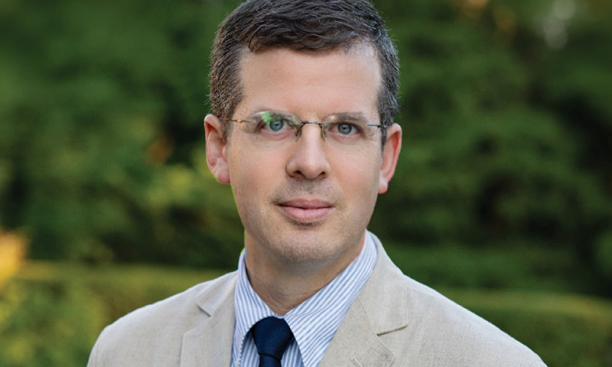
Ronen Shoval, a 2022-23 associate research scholar with the James Madison Program and lecturer in politics at Princeton, faced opposition from students, faculty, and locals while on campus due to his affiliations with a right-wing Israeli movement some have said has similarities with fascism.
Shoval founded Zionist nongovernmental organization Im Tirtzu in 2006, though he told PAW via email that he severed ties with the group more than a decade ago. In 2013, a Jerusalem district court ruled the group had characteristics similar to fascist organizations, though in 2015, the nation’s Supreme Court dismissed that ruling.
In late March, a talk Shoval gave at the Center for Jewish Life drew about 50 attendees — and 70 protestors, mostly from the local community, according to The Daily Princetonian.
A month later, the Prince published an op-ed by Princeton professors Eldar Shafir and Uri Hasson that they said was meant to alert the community to Shoval’s appointment and to “invite us to reflect on who we want to appoint to teach our students.”
In a statement to PAW, Bradford Wilson, executive director of the James Madison Program, said that “though we realize that not everyone agrees (even when they sometimes purport to agree) with Princeton University’s formal commitment to ‘free and open inquiry on all matters’ (Rights, Rules, Responsibilities, 1.1.3), the James Madison Program steadfastly approves of and honors that commitment … .”
The op-ed authors said their criticism is not related to freedom of speech. In an email to PAW, Shafir said, “I am all for free speech, not free teach. We should allow people to speak their minds on campus, but we shouldn’t reward them all” with appointments at a university.
In the Prince, the authors wrote “Princeton should always support a wide variety of views, but not a variety of scare tactics or bullying techniques” and called on “departments and programs to revisit their procedures for inviting visitors to teach.”
As Shoval’s appointment came to a close, he said he found his time on campus gratifying, but “it is unfortunate that I was subjected to an unsettling cancellation attempt at Princeton University,” and that the situation “bears witness to an insidious endeavor to curtail freedom of thought and expression in general, and especially to silence conservative voices within academia.”
